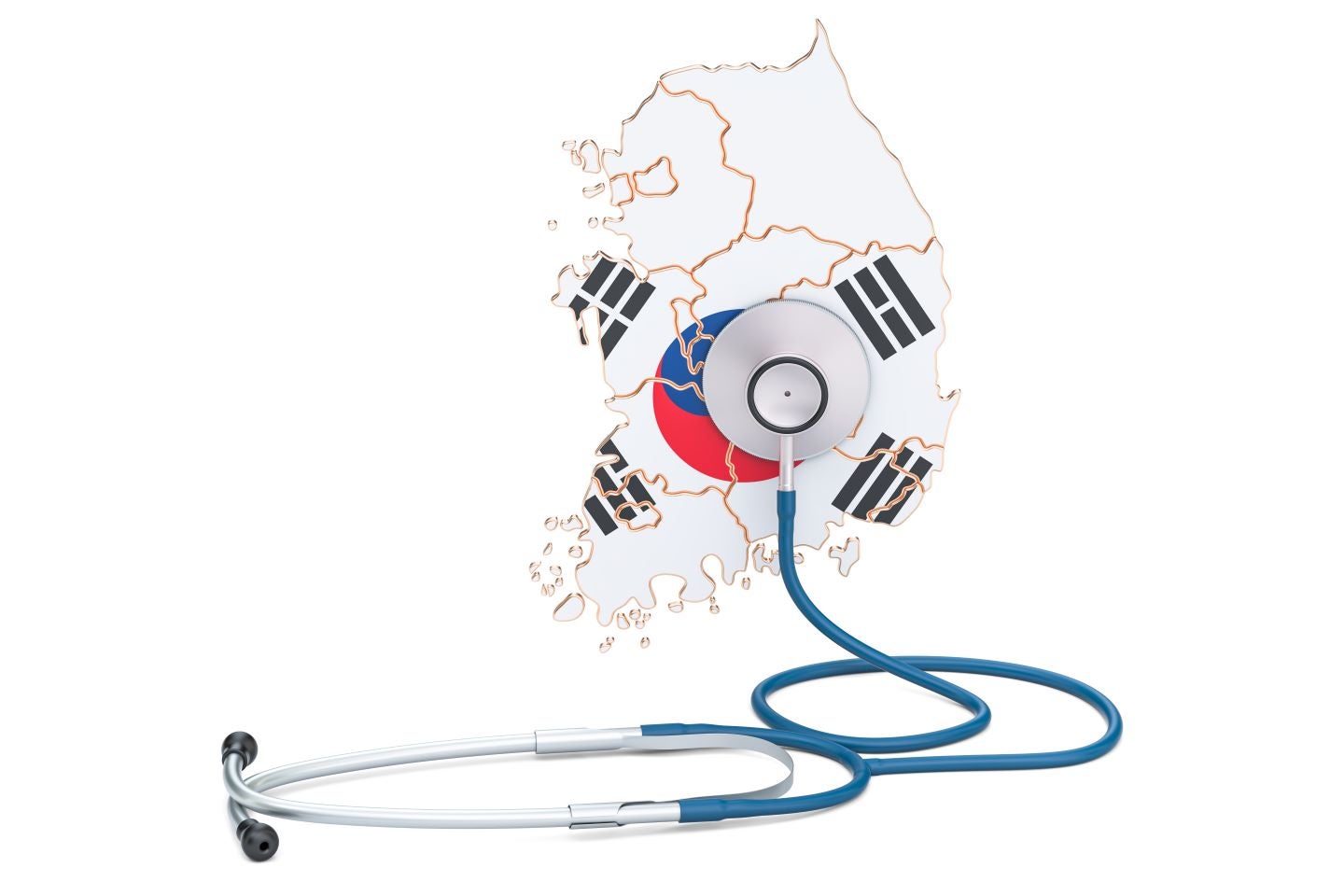Reform in South Korea means progression in improving time to reimbursement
South Korea has been busy with a series of reforms that aim to accelerate the time it takes to introduce new innovative drugs into its national insurance system. The country has been known for its stringent reimbursement conditions, with manufacturers often needing to undergo several attempts to secure reimbursement approval for their products. GlobalData has therefore compared the average time (in days) it takes branded drugs to be reimbursed after receiving their approval in South Korea compared to other advanced countries, including Japan, Australia, the UK, and Spain. In 2022, the average time to reimbursement in South Korea for branded drugs was 620 days, which is significantly longer than the average time to reimbursement for branded drugs in the markets mentioned above. However, the country has made significant progress in improving drug accessibility, especially high-cost rare disease treatments and anti-cancer drugs, by easing reimbursement requirements. In fact, the average time to reimbursement for branded drugs in South Korea was more than 1,000 days a decade ago but has reduced to approximately half that figure in 2022 (620 days). The average time to reimbursement for branded drugs was even improved in South Korea during the Covid-19 pandemic, a period when most countries were facing serious delays in reimbursement. Notably, Japan took an average of 301 days to reimburse branded drugs during Covid-19, when previously it only took an average of 90 days. GlobalData identified that the implementation of the risk-sharing agreement (RSA) and the cost-effectiveness analysis (CEA) waiver systems in South Korea have contributed to the improvement in shortening the time to reimbursement by lowering the insurance listing barriers for innovative drugs, which have limited evidence to prove their benefits. The RSA system, implemented in South Korea in 2013, targets treatments for cancer, rare diseases, and other life-threatening diseases for which alternative treatments are not available in South Korea and is categorised into four types: expenditure cap, rebate, utilisation cap/fixed cost per patient, and conditional treatment continuation plus money-back guarantees. The majority of the signed RSAs were expenditure cap agreements, followed by rebate agreements. Until August 2023, a total of 68 innovative treatments were introduced into South Korean national health insurance under RSAs. According to an RSA report done by the Seoul National University R&DB Research Foundation, the insurance coverage of cancer drugs and rare disease treatments has increased. Between 2014 and 2019, 82.2% and 77.4% of the newly approved cancer drugs and orphan drugs, respectively, were listed for reimbursement, and previously the coverage rates were 77.5% for cancer drugs and 72.5% for orphan drugs between 2007 and 2013. Additionally, although the average time to reimbursement for drugs with RSAs was longer than drugs without RSAs, an increasing number of expensive drugs passed the reimbursement review in their first-time or second-time application. The report found that the average time for the Drug Reimbursement Evaluation Committee (DREC) to review a drug's reimbursement application to achieve a new listing decision decreased from 2.8 times before 2013 to 1.4 times in 2014–mid-2022. The CEA waiver system, implemented in South Korea in 2015, aims to accelerate the time to reimburse innovative drugs that cannot show evidence of their cost-effectiveness, which is the golden standard for reimbursement review, before listing in national health insurance. Under the CEA waiver system, drugs that meet certain requirements, including proof of their clinical usefulness and their patient needs, are eligible for the exemption of CEA submission. Additionally, manufacturers should reach the expenditure cap RSA with the Health Insurance Review and Assessment (HIRA) to secure positive reimbursement recommendations for their products with CEA waivers. Senior official of the HIRA, Yoo Mi-young, confirmed that about 87.5% of cancer and rare disease treatments newly approved for reimbursement in 2022 were reviewed without CEAs. Although the CEA waivers have shortened the time for manufacturers to file for reimbursement applications, researchers and healthcare providers have expressed strong opposition to the expansion of CEA waiver eligibility, citing concerns about the high uncertainty of clinical benefits and the high uncertainty about financial impacts. So far, drugs introduced in national insurance without CEA are subjected to the international reference pricing (IRP) rules which prices should not exceed the lowest prices in the eight reference markets. Apart from the ease of reimbursement eligibility, the HIRA is working closely with the National Health Insurance Service (NHIS) and the Ministry of Food and Drug Safety (MFDS) to shorten the time spent during the reimbursement process. In H1 2023, South Korea

What's Your Reaction?
































